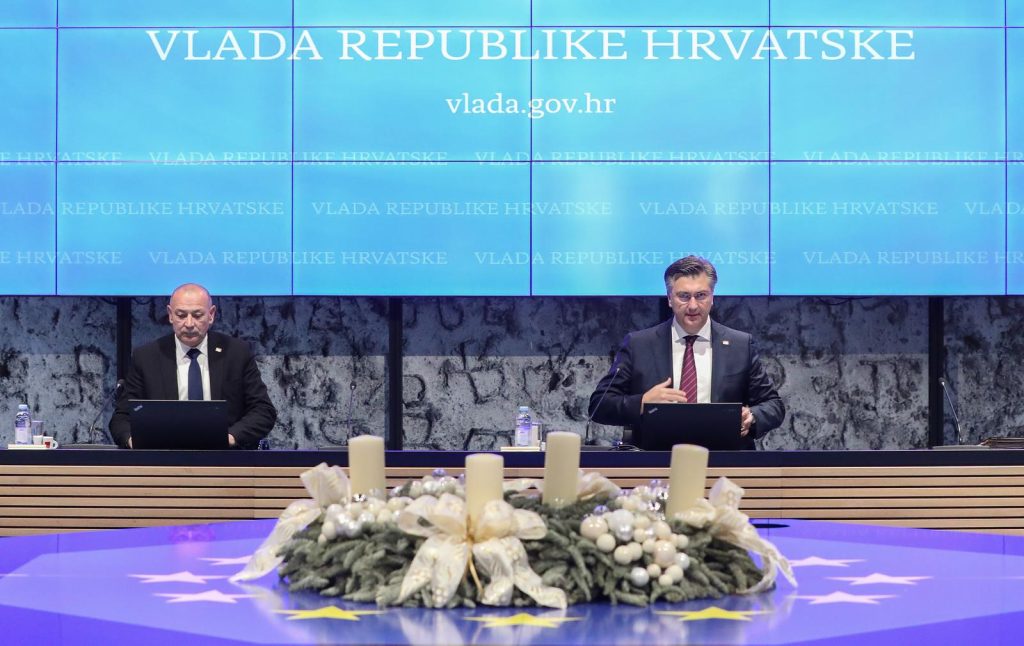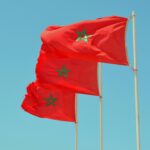January the 5th, 2024 – This week in Croatian politics, we’re preparing for a year full of elections – parliamentary, presidential, and European.
ECONOMY MINISTER DAMIR HABIJAN ANNOUNCES RELIEF MEASURES for 2024

Economy Minister Damir Habijan has announced a package of 73 relief measures spanning the entire domestic economy.
At the last session of 2023, the government adopted, among other things, the Action Plan for the reduction of non-tax and parafiscal benefits for 2024. The new package envisages a total of 73 relief measures, the implementation of which is planned to provide direct cost relief in the amount of 132.8 million euros, at least according to Economy Minister Damir Habijan, who presented the plan.
This package provides further relief to the economy, he revealed, and it is also one of the reform measures related to the business environment in the National Recovery and Resilience Plan, making it one of the prerequisites for the next tranche of funds from the European Mechanism for Recovery and Resilience.
Economy Minister Damir Habijan emphasised that the previous Action Plan, adopted back in 2020, was fully implemented with the first quarter of 2022. It included 50 measures whose total effects of burden relief exceeded a massive 70 million euros.
In preparation for the new round of reduction of non-tax and parafiscal levies, the Economy Ministry coordinated the activities of shaping measures with a number of other state administration bodies. This included seven ministries, the State Geodetic Administration, the State Inspectorate, the State Bureau of Statistics and the Croatian Chamber of Commerce (HGK).
Measures intended for both the healthcare sector and for agriculture stand out in particular.
You can read more by clicking here.
The first live government session of 2024 is held
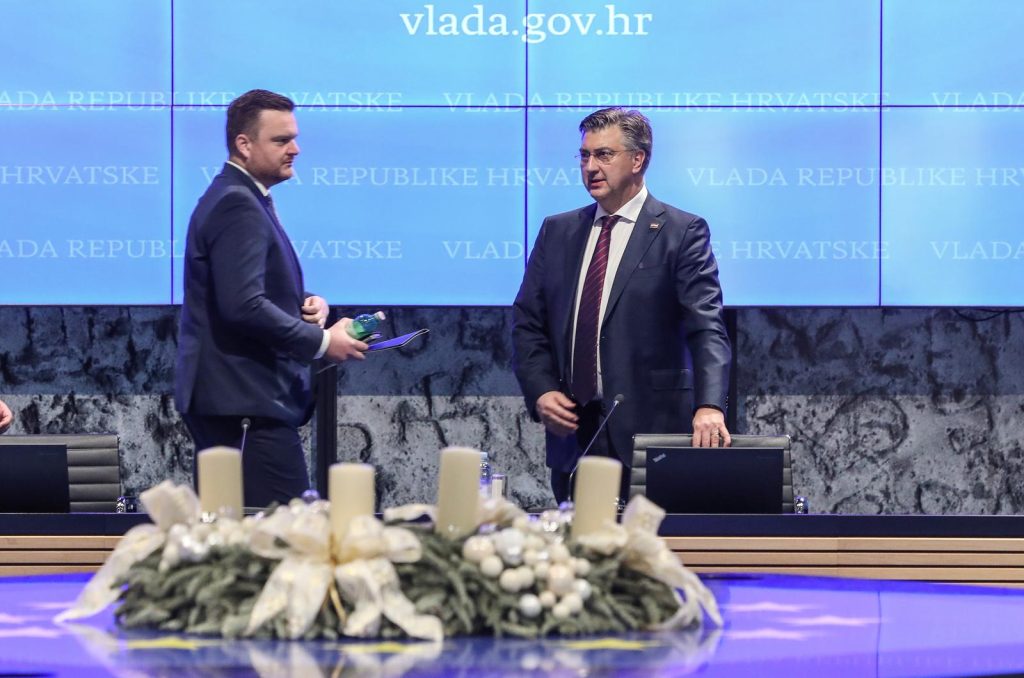
Croatian politics is back from its Christmas break, and this year’s first live government session was held this past week, as Index vijesti/news reports. On the agenda were, among other things, the Proposal on starting negotiations on changes to the Collective Agreement for civil servants and state employees and the appointment of the negotiation committee of the Croatian Government.
The Croatian Government also had the Proposal for State Aid Policy Guidelines for the period 2024-2026 to hash out. This was as well as the decision on the classification of local and regional self-government units according to the level of development, and the amendment to the Decision on accepting the settlement between the Republic of Croatia and HŽ Cargo d.o.o., for the purpose of restructuring.
At the beginning of 2024’s maiden government session, Prime Minister Andrej Plenković spoke about strengthening Croatia’s international position in general. “Given that we’re now at the beginning of the new year, I’m going to look at several new laws that have come into force – there are nine laws in the tax reform package, which will increase everyone’s wages. This has increased the minimum wage to 840 euros gross, marking a significant increase.
The Law on Inclusive Supplement, which unifies and increases benefits, is also entering into force. The national allowance for the elderly is also increasing, and will amount to 150 euros. We’re entering the phase when the Law on Trade is going to be fully applied, properly regulating work on Sundays. That means that we’re now moving to a regime of only sixteen working Sundays in an entire calendar year,” he added, according to N1.
“For the sustainability of the pension system, we’ve changed four laws. Disability allowances for Croatian military invalids are also being increased,” said Plenković.
He pointed out the increased amounts for child allowances, as well as changes in the law that enable all primary schools to switch to the morning shift by the year 2027. “The Law on Property Management has come into force in order to better manage state property. A new legal framework has been created for salaries in the state and in public services, and it’s a historic reform,” he said.
“Regarding other topics we should visit, I want to condemn the intense airstrikes on Ukraine and the continuous violation of humanitarian law by Russia. Attacks on civilian infrastructure only further strengthen Croatian support for Ukraine. On the anniversary of the December 2020 earthquake, we also visited Petrinja, Glina and Sisak,” concluded PM Plenković.
When might Croatia’s parliamentary elections take place?
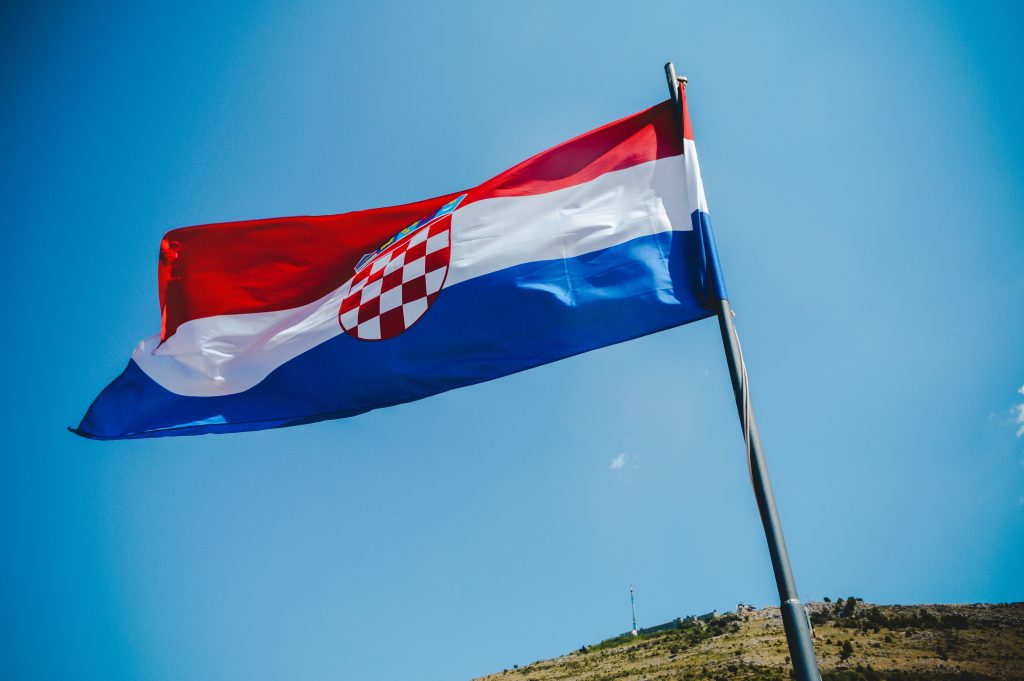
According to a report from Index vijesti/news, Prime Minister Andrej Plenković said that “parliamentary elections will certainly not be held in the first or fourth quarter of this year”.
“Everything will be on time. We’re now approximately three and a half years into the second term of my second government, and I think that everything will be as it should be, done at the right moment, which in my opinion will be appropriate for the holding of the parliamentary elections. That’s what is most important.
We’ve had a lot of crises that we’ve had to face over the past three and a half years. Realistically, when you look back at all that, everything that could have happened, did happen – from the biggest pandemic in the last hundred years, to two devastating earthquakes in Zagreb, Banovina, Russian aggression against Ukraine, an energy crisis, social pressures, inflationary pressures… We rubber stamped a great many economic packages of measures for Croatia during that time.
Therefore, we have shown that the state is with the public, that the government is with the public, that Croatian politics stands by the Croatian people. We’ve shown that Croatian politics stands side by side with the Croatian economy and that we have preserved social cohesion while at the same time achieving strategic interests. We didn’t simply shelve what we’d planned and fought the crisis, we did both in parallel,” the PM stated.
The first year of the euro and of Schengen – and continued inflation
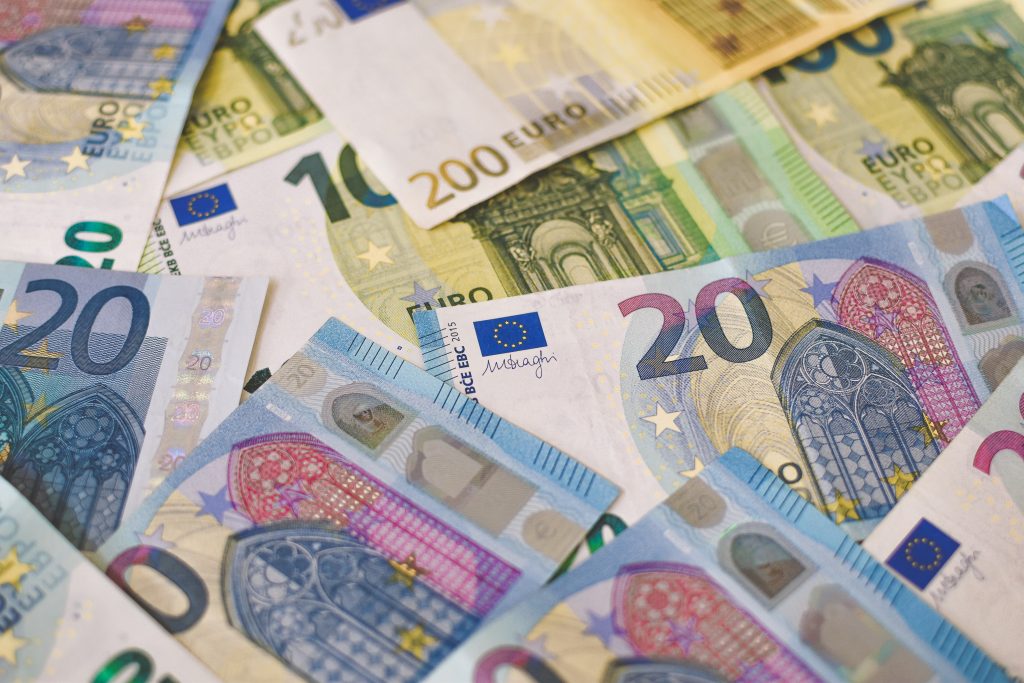
Last year was full of fulfilling strategic goals for Croatian politics. It was marked by long-awaited Eurozone accession, entry into the Schengen zone, as well as by ongoing inflation, which brought ever-rising prices, as Index vijesti/news reports.
“We secured ourselves both in the field of internal and external security with Schengen accession,” said the PM.
“We were initially existing in some kind of phase of prosperity, and now we’ve experienced huge crises where individual Schengen nations have temporarily re-instated border controls. This is a temporary solution and you can see that despite that, there are no big crowds, everything is being correctly taken care of. Our goal is to make the maximum effort in the talks we’re going to be having with both Italy and Slovenia to remove those barriers that currently exist temporarily by this summer’s tourist season,” Plenković assured.
The Prime Minister then asserted that the replacement of the Croatian kuna with the euro last year was technically perfect. “We did it so that no ATMs were missing euro banknotes, nor was any payment put into question. You saw the report of the European Commission (EC), the inflation we experienced wasn’t due to the euro but as a result of other elements. There were also external increases in the prices of some materials and raw materials, as well as in the prices of economic entities across Croatia. That’s why we opted for price caps on certain products, we appealed especially to what people consume most often, which is food products,” the PM said.
When inflation is subtracted from wage growth, Plenković pointed out that real growth is greater than 20 percent and that the purchasing power of people is now greater than it was before.
“We have to fight for everyone to behave responsibly. We’re in a market economy and we can’t now become some mega interventionist government that will completely disrupt market principles, we don’t want that, but on the other hand we also don’t want some people to profit more than they should, while those who are most vulnerable have to endure higher prices. It’s a delicate balance in which everyone must play their role, not only us as the government and state,” he said.
2024 is the year of multiple elections for Croatia
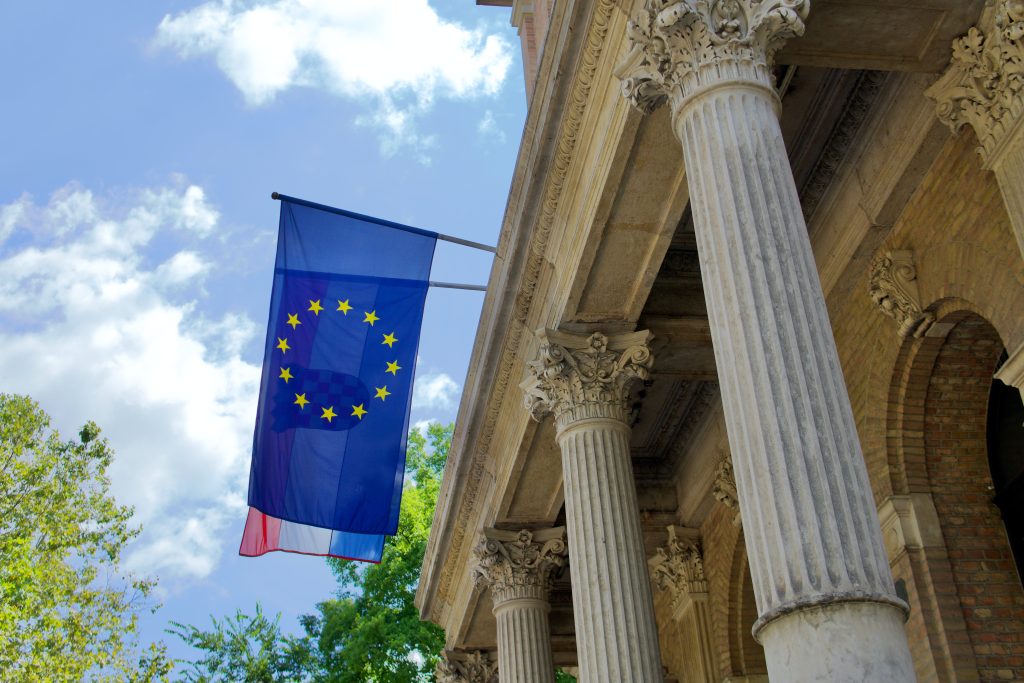
The new year is set to be the year of Croatian politics across a huge spectrum, with elections taking place several times. 2024 is going to be marked by not only the aforementioned parliamentary elections, but also presidential and European ones. At this moment in time, only the date set for the European elections is known, with the first round of Croatian presidential elections set for December this year.
Elections for the European Parliament here in Croatia and in other countries where voting is traditionally held on Sundays will be held on June the 9th this year. In entire European Union, they’ll be held over a period spanning four days, from June the 6th to the 9th, since some EU Member States also hold elections on other days.
Croatian voters will thus elect their European parliamentarians for the fourth time, the last time they did it was back in 2019, and before that in 2014 and 2013, right after officially joining the EU. The European Parliament has 705 representatives who are elected in 27 nations, with elections being held every five years. 12 representatives are set to be elected here in Croatia.

